EWIJK, HOLLAND, July 1, 2013- European Union regulations governing the living conditions for animals used in production agriculture are largely driven by consumer interest, which peaked after disease outbreaks in the late 1980s. In the poultry sector, the EU mandated the transition to enriched cages from battery cages in January 2012.
While some studies indicate free range and enriched cage hens produce more eggs, the cost to make the transition accelerated consolidation in the industry. Despite economic challenges, a Dutch-based company is taking the costly risk to sell eggs raised in unique conditions that go beyond EU requirements.
Illinois Farm Bureau members visited Rondeel Eggs in Holland during their Animal Care European Union (EU) Study Tour, where they witnessed the results of meeting precise consumer demands in animal production. They learned this week that round is better when it comes to premium living conditions for laying hens, according to Dutch consumers.
One of three Rondeel facilities in the world, the poultry house located in Ewijk, Holland, resembles a circus tent upon first sight, noted several Farm Bureau members. The shape of the facility accommodates four sections each housing 6,000 laying hens and two sections housing 3,000 hens. These sections contain night and day atmospheres, complete with artificial grass, wood chips and materials for pecking and scratching.
As is the case with the other two Rondeel facilities—both located in Holland—the circular shape of the building is not based on any behavior or health research. “The only reason house is round is because it was preferred by the public,” explained Peter Koerkamp of the University of Wageningen. “It is simply based on the wishes and demands of the public and consumers.”
Koerkamp said consumer surveys, which only included consumers willing to buy premium eggs, asked the subjects to draw which shape they would find most appealing for chicken production. According to their consumer results, round is preferred, so round the Rondeel houses became.
Illinois Farm Bureau members viewed the second Rondeel flock that belonged to Willy Derks, the farmer managing the Ewijk Rondeel farm. Derks bought the barn from Rondeel and entered into a franchise contract with the company to raise their hens. The operation is almost three times as expensive as raising hens in barn cages, Derks noted.
Rondeel facilities, which housed its first flock in 2009, are designed for visits from the public with a viewing hallway allowing eye-level windows to the flock between one of the sections. The egg packing room, located in the centrally located management area, is also on display through a floor window in the reception area.
“Consumers like the fact that it’s open and they can see the birds,” Koerkamp said. “Normally, people who see Rondeel want to pay a little bit more for their eggs. They see how we work how we handle our chickens and they often say, ‘Yes, we want to pay a little bit more.’”
The space per chicken, which is about 1,600 square centimeters, is more than twice the standard required in Europe. Although Rondeel is not considered either free range or organic, the company intends to fill a niche market with eggs produced in high quality welfare situations that cost nearly the same as organic products.
As of January 2012 the EU banned conventional battery cages. The two types of rearing systems allowed in the EU include: enriched cages with at least 740 cm square cage area per hen; or a non-cage system that cannot exceed a stocking density of more than nine hens per meter squared.
Consumers familiar with Rondeeel housing can easily spot the company’s product in Holland’s Albert Heign supermarkets, which stock the Rondeel circular egg boxes with seven eggs, one for each day of the week.
The Dutch Society for Prevention of Cruelty to Animals, which designed the 'Beter Leven' (Better Life) quality mark, gives Rondeel three stars of a three star system that ranks animal welfare standards.
Koerkamp said Rondeel housing delivers 30,000 eggs per day and operates with a three percent mortality rate, compared to 15 percent mortality rate in organic production. However, he noted the artificial outdoor atmosphere, which is covered by roofing to prevent contamination from wild birds, is completely arbitrary. “Welfare conditions can be perfect in current indoor structures,” he said. “But consumers don’t like them inside.”
The decision to refrain from beak trimming on Rondeel animals is another consumer-friendly decision by the company. Although allowing the sharp upper mandible of the chicken beak to remain on hens can cause pecking problems when aggression between animals is displayed in group housing situations, Rondeel researchers claim their lowered light intensity between day and night quarters prevents any severe pecking.
A beak trimming ban is being considered by European legislators, but is not implemented. However, some groups are making the decision to ban the practice before the government does. In Denmark, the Danish Egg Association last Thursday decided to stop beak trimming of cage hens from July 1, 2013, Jørgen Nyberg Larsen, president of the association. Larsen said his board made the change due to increasing pressure from animal welfare activist groups.
Similar non-governmental organizations also play a significant role in the Dutch market system. Animal welfare NGOs have a growing legislative reach. Two of 150 members of Dutch parliament belong to a political party dedicated to animal welfare—The Party for the Animals.
Koerkamp said some NGO and activist groups are dedicated to eliminating intensive animal production, but Rondeel facilities achieved the opposite reaction. Previously antagonistic NGOs began promoting Rondeel eggs, essentially advertising for the company, Koerkamp said.
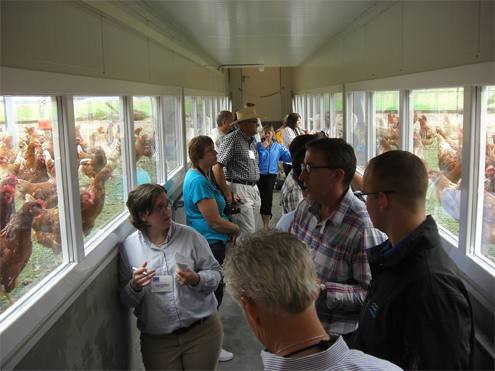
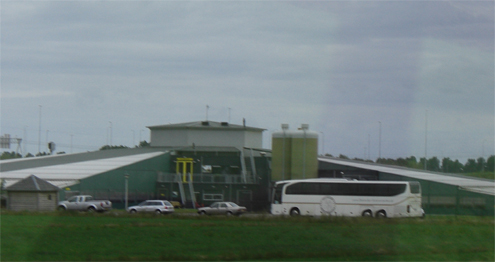
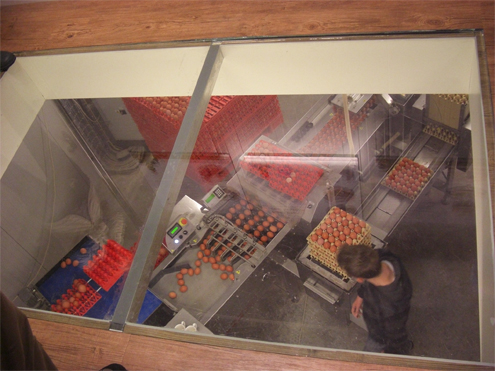
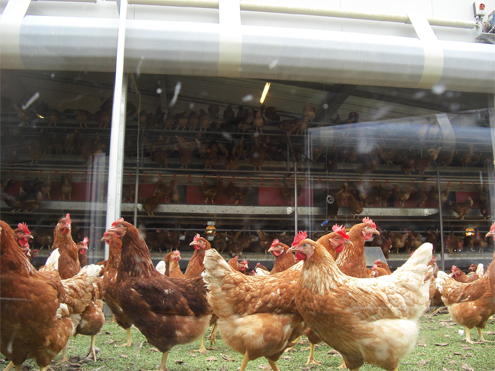
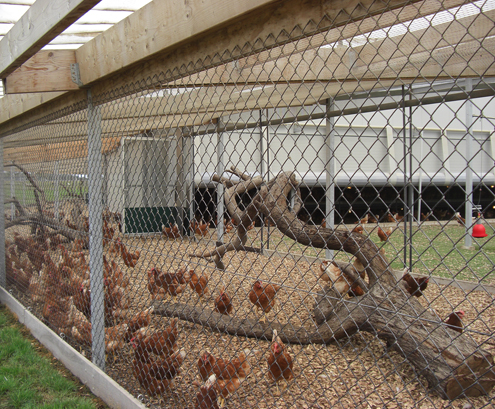
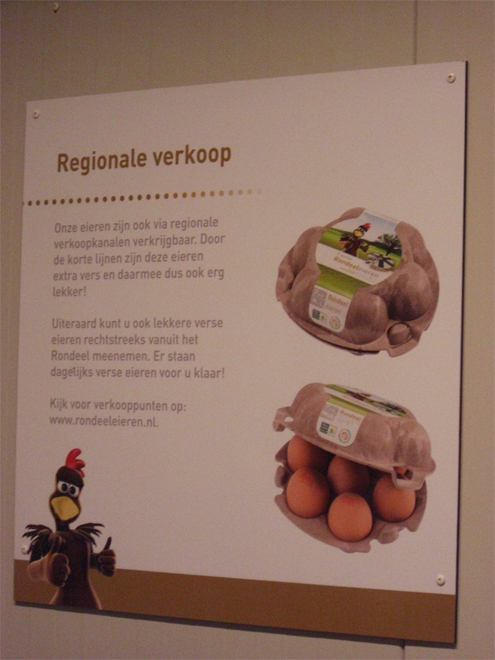
#30
For more news, go to www.agri-pulse.com

